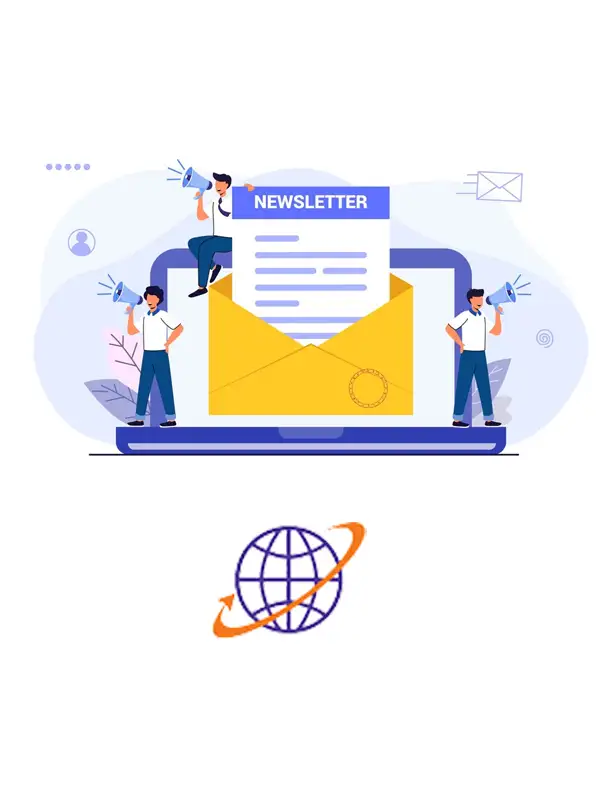If you use these tips, your website will rank higher in search engine results as it becomes more search engine optimized (SEO).
1. Hire an experienced Web Designer
It might be exciting to have a web designer on your team. Your idea is probably currently being turned into a working, successful website from a variety of sketches, prototypes, and complex back-end code.
The process of hiring a freelance web designer might be difficult. Trying to comprehend and arrange everything necessary to satisfy your production needs while also taking care of your business objectives and the always changing expectations of your users is a difficult task.
2. Publish Relevant, Authoritative Content
There is no alternative for outstanding content; this is especially true when engaging in SEO marketing. Quality, authoritative content is the main factor affecting your search engine rankings. The more visitors your site receives, the more authoritative and relevant it becomes because of the quality material you’ve generated with your target audience in mind. Develop your web writing abilities and establish yourself as a subject matter expert.
Keywords
Each authoritative content page on your website has a specific keyword phrase that you should identify and target. Consider the search terms your reader could use to find that particular page.
- online masters in engineering management
- what is biomedical engineering?
- title IX education resources
- photographing northern lights
- how to apply for scholarships?
- when is the FAFSA deadline?
- what is the difference between engineering and engineering technology?
Multiple Keyword Phrases
A website will have a very difficult time ranking for many keyword phrases unless those keywords are substantially similar to one another.
Both “biomedical engineering jobs” and “biomedical engineering careers” may be ranked on the same page. It’s implausible that a single page could rank for “student affairs,” “dean of students,” “gender discrimination,” or “violence reporting processes.”
You must create a distinct webpage for each keyword phrase you are targeting if you want your website to rank for several keyword phrases.
Placing Keywords
Once you’ve decided on your keyword phrase for a particular page, think about these concerns:
- Can I use part or all of the keyword phrase in the page URL (by using keywords in folders)?
- Can I use part or all of the keyword phrase in the page title?
- Can I use part or all of the keyword phrase in page headings and subheadings?
If you check these boxes, your search engine rating will increase. However, be friendly and natural.
For instance, you don’t want the phrase Northern Lights repeated in the page title or any of the headings, or the word “engineering” to appear three or more times in the URL. Search engine optimization still comes in second to readability and usability.
Content
Content has the most impact on search engine rankings over the page’s URL, title, and headers. The opening and closing paragraphs should contain your keyword phrase once or twice each, and the remaining paragraphs should contain it two to four additional times. Be in command.
Link strategically to extra resources and information, both on the main website of your company and on other helpful websites.
Don’t forget to highlight these keyword phrases with bold, italics, header tags (particularly an H1), and other emphasis elements, but don’t go overboard. However, you still want your writing to read naturally.
Never compromise your writing quality for SEO. The finest pages are those that are written for people, not search engines. Find fresh content opportunities by learning more about SEO marketing.
3. Update Your Content Regularly
Blogging
Your departmental news blog’s keyword-rich content creation can help improve your search engine rankings. Even shorter updates about the specific subjects you are aiming for can be used as blog posts.
Link to relevant CMS webpages and blog posts when doing so will help the reader understand the subject matter better or provide them with further details.
4. Metadata
Each page on your website should have a space between the head> tags for metadata—information about the page’s contents. If you have a CMS site that was created by the UMC web team, this information will already be pre-populated for you. However, as your site evolves over time, it is crucial that you check and update the metadata.
Title Metadata
The page titles that appear at the top of a browser window and as the headline in search engine results are both a result of title metadata.
The most significant metadata on your page is this one. The web team has created an automatic mechanism that uses your page title to generate the meta title for each webpage for people who have a CMS website. This emphasizes the value of utilizing carefully considered page titles that are packed with keyword words.
Description Metadata
The textual description that a browser may provide in your page search return is called description metadata. Imagine it as the window display for your website—a succinct and appealing summary of what is within, intended to entice visitors to come.
Usually, a good meta description will have two complete sentences. It’s crucial to provide search engines the option even though they might not always use your meta description.
Keyword Metadata
Rarely, if ever, is keyword metadata utilized to calculate search engine rankings. It doesn’t harm to include your keyword phrases in your keyword metadata even if you should already be familiar with them.
You should use a range of words and phrases. As a general rule, try to limit it to 3–7 phrases, each of which has 1-4 words. “Degree in computer science” is a wonderful example.
5. Have a link-worthy site
The likelihood of receiving links from other websites increases when a website is authoritative, impartial, and helps users learn more about what they are interested in. This boosts your search engine optimization.
By including pertinent links within the content, you can increase your authority and trustworthiness. Try writing the name of the location in place of “click here” links. In contrast to “Michigan Tech Enterprise Program,” which is packed with keywords and will raise both your own and the page you are linking to in search engine results, “Click here” has no additional search engine value beyond the connected URL. Always link keywords to descriptive links—it not only improves search engine optimization, but also adds value to your readers, including those with disabilities or who are using screen readers.
6. Use alt tags
Use alt tags, or alternative text descriptions, to always provide your image and video media a description. They are essential, especially for people who use text-only browsers or screen readers, as they enable search engines to find your page.













